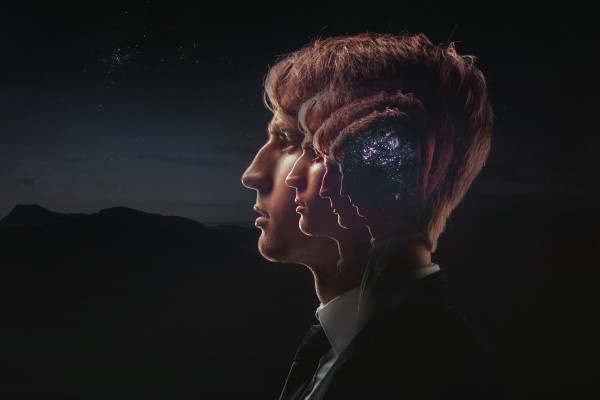
Best Books on Consciousness - Recommendations by Peter Watts
Some of the most basic questions about the human mind are still mysteries to us. Although we do have a few intriguing clues, we still don't fully understand how we recognize faces, why we cry or laugh, why we dream, why we enjoy music and the big one: what consciousness really means and why it evolved.
During our recent AMA with award-winning hard science-fiction novelist and marine biologist Peter Watts, we talked about a range of topics from free-will to the future of language & artificial intelligence. We also took the opportunity to talk about Consciousness and asked Dr. Watts for some book recommendations on the subject.
These are four titles that are his personal favorites, as well as books he recommends to gain a deeper understanding of consciousness — one of the biggest unsolved mysteries in biology and evolution.
1. Phantoms in the Brain: Probing the Mysteries of the Human Mind by by Sandra Blakeslee and V. S. Ramachandran

In an eye-opening book, neurologist V. S. Ramachandran probes the brain's elusive and bizarre behavior in meticulous detail. Beginning with an overview of how the brain functions, Ramachandran goes snooping with a flashlight into the recesses of the mind, describing how the different parts of the brain interact with each other. Ramachandran then attempts to uncover the mysteries behind curious conditions such as phantom limb syndrome, anosognosia, temporal lobe epilepsy which seems to induce trance-like visions of God in some patients, and others. To add a nice touch, each chapter begins with a quote taken from a wide range of sources such as the Vedas, Shakespeare, or Sherlock Holmes. Another notable quality of the book, one that makes it a delight to read, is Ramachandran's humility and wit; he doesn't claim to know all the answers but dares to approach the esoteric questions few have attempted to address with a good dose of humor.
2. The Illusion of Conscious Will by Daniel M. Wegner

The title speaks for itself. The Illusion of Conscious Will examines the issue of free will vs determinism from several angles and brilliantly argues, with the help of extensive research and documented studies, that humans grossly misunderstand and deceive themselves. This is an enlightening read that breaks down the biochemical and neurological underpinnings of volition, demonstrating how illusory our self-awareness is. Although a little technical to wade through, this is still one of the more accessible books on the subject of consciousness and the author approaches the subject with a pinch of humor to make it an interesting read. Watts has called it a 'fascinating and accessible' book on the topic of consciousness. The Illusion of Conscious Will won the Silver Award for Philosophy in the 2002 and was selected as a finalist in the category of Psychology/Mental Health in the 2002 Independent Publisher Book Awards (IPPYs) presented by Independent Publisher Magazine and was listed as an Outstanding Academic Book for 2002 by Choice Magazine
3. Being No One: The Self-Model Theory of Subjectivity by Thomas Metzinger

Difficult, dense, but ultimately worth the trouble, this is a book that will change the way you think about yourself and your free will. In Being No One, Thomas Metzinger draws heavily on neuroscientific research to present an extremely detailed case, one that argues that no such things as selves exist in the world. Consciousness is no easy subject, and this book demands some prior knowledge of philosophy and philosophy of the mind in particular if you're going to fully grasp what Metzinger is trying to convey. But even if it takes a lot of research, study, and Google searches, there are fascinating new insights into the nature of consciousness to be learned from this book. During the AMA, Watts humorously remarked that he recommends this book when he wants to 'appear impressive' and described it as a book that shows how fragile human identity is, revealing that it changed the way he looks at the world.
4. The Ego Tunnel: The Science of the Mind and the Myth of the Self by Thomas Metzinger

Buddhist philosophers have relied on the nonexistence of the self since long ago, as a form of meditation, reflection & finding inner peace. In this book, German philosopher Thomas Metzinger presents the theory of no-self in the context of modern cognitive science and provides a plausible, step-by-step argument for how the brain constructs the image of the self. The book is an easier read than Being No One and Watts said it is "far more accessible," in comparison, dubbing it a "Being No One for Dummies."

Popular Blog Posts
A conversation with Marjan Kamali
New Year, New Book, New AMA
A conversation with Rachel Joyce
December Book Club and AMA with Rachel Joyce
Ask Me Anything
Each month there is a live monthly Q&A with a wide range of interesting authors. This is your opportunity to understand your favourite books on a much more personal level.
View Upcoming AMAs